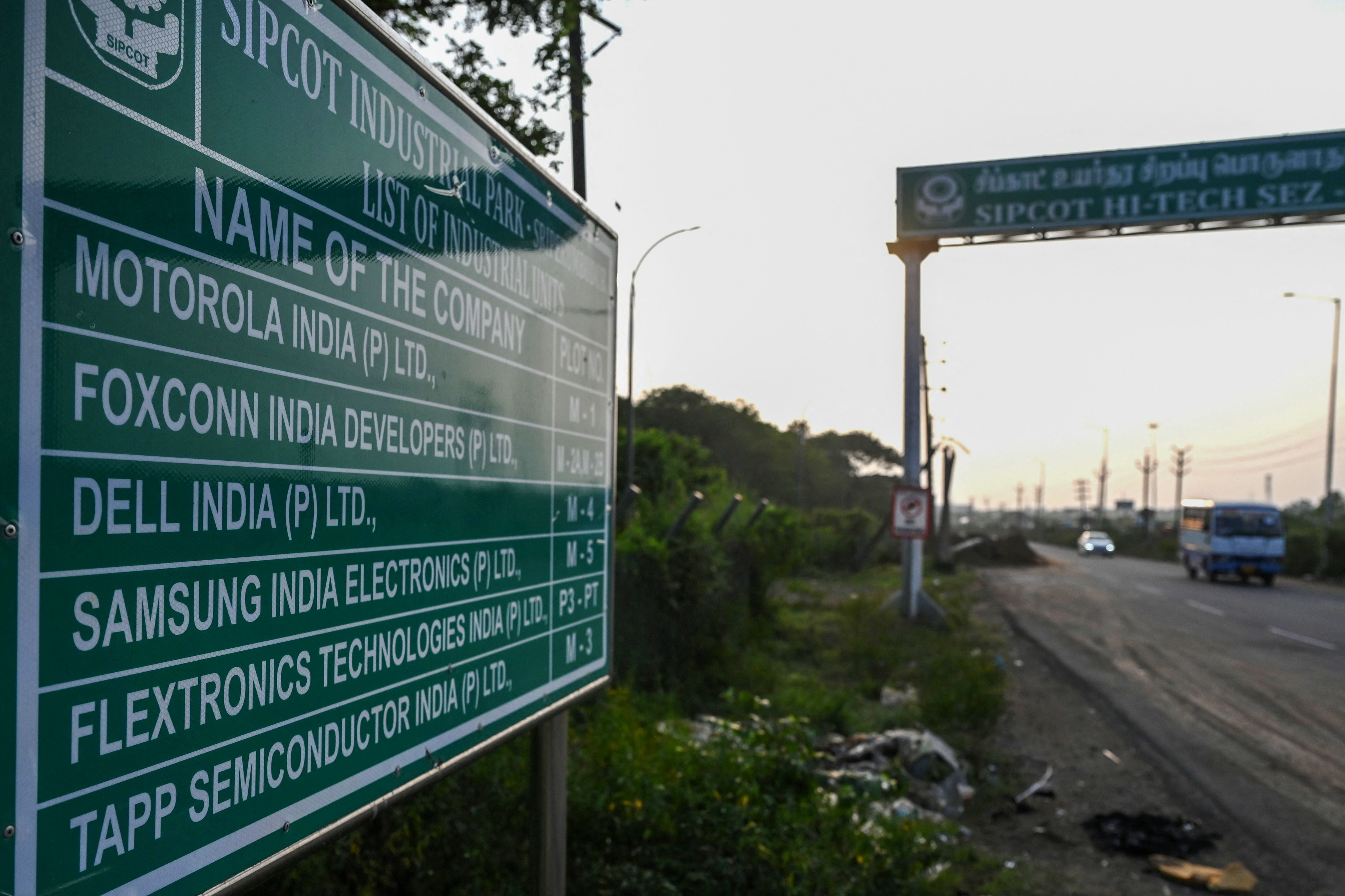iPhone maker drops out of $20bn India chip factory plan
Foxconn’s joint venture termination gives rise to concerns over country’s chip-making plans even as government says there will be no impact

Taiwan’s top electronics manufacturer Foxconn has severed its $19.5bn (£15.1bn) semiconductor joint venture with a leading metals and mining conglomerate in India, giving rise to concerns about the future of the country’s chip-making plans.
The manufacturer, best known for assembling iPhones and other Apple products in Asia, confirmed the termination of plans with India’s Vedanta Ltd on Monday.
The venture would have led to the manufacturing of semiconductors in Indian prime minister Narendra Modi’s home turf Gujarat.
The leading electronics manufacturer did not provide any reasons for the scuttling of the deal, and instead said the decision to end its joint venture with Vedanta was mutual.
“Foxconn (2354.TW) has determined it will not move forward on the joint venture with Vedanta,” the tech group said in a statement. It said work with Vedanta was in motion for more than a year to fulfil “a great semiconductor idea to reality”, but the two players had now decided to mutually end the joint venture.
Foxconn will remove its name from an entity that is now completely owned by Vedanta.
Vedanta confirmed the news shortly after Foxconn’s announcement, and said it is fully committed to the semiconductor project as it had “lined up other partners to set up India’s first foundry”.
“Vedanta has redoubled its efforts” to fulfil Mr Modi’s vision, the statement issued by officials from the conglomerate read, but did not elaborate on the plans and other partners that it claims to have.
After news of the termination fuelled speculation that there was a fallout between the two entities, Foxconn issued a fresh statement on Tuesday and said both parties had “mutually agreed to part ways”.
“This is not a negative. There was recognition from both sides that the project was not moving fast enough, there were challenging gaps we were not able to smoothly overcome, as well as external issues unrelated to the project,” read the latest statement by the group, formally known as Hon Hai Precision Industry.
Foxconn said it is “committed to India and sees the country successfully establishing a robust semiconductor manufacturing ecosystem”.
“It will take time. Foxconn first entered India in 2006 and we are still here. The Group looks forward to growing alongside India’s nascent semiconductor industry,” it said.
Shortly after the first announcement from Foxconn on Monday, India’s junior minister for information and technology, Rajeev Chandrashekar, doubled down on the country’s ambitions and plans and said the Taiwan-headquartered giant’s exit has had no impact on New Delhi’s semiconductor manufacturing goals.
“Both Foxconn and Vedanta have significant investments in India and are valued investors who are creating jobs and growth,” he said in a detailed tweet.
“It was well known that both companies had no prior semicon experience or technology and were expected to source Fab tech [fabrication technology] from a tech partner,” he said.
The minister said it was not for the Indian government to get into “why or how two private companies choose to partner or choose not to”, but added that, in simple terms, it meant both companies can and will “now pursue their strategies in India independently”, and with appropriate technology partners in semiconductors and electronics.
Under the proposed semiconductor fabrication plant, Foxconn and Vedanta were set to initially produce nearly 40,000 40-nanometre chips per month to cater to the rising market of smartphones, consumer electronics, automotives and networking equipment.
Mr Modi had dubbed chip-making a top priority for the country’s economic strategy in pursuit of a “new era” in electronics manufacturing and Foxconn’s move seemingly represents a blow to his ambitions of luring foreign investors to make chips locally for the first time.
Join our commenting forum
Join thought-provoking conversations, follow other Independent readers and see their replies
Comments




Bookmark popover
Removed from bookmarks